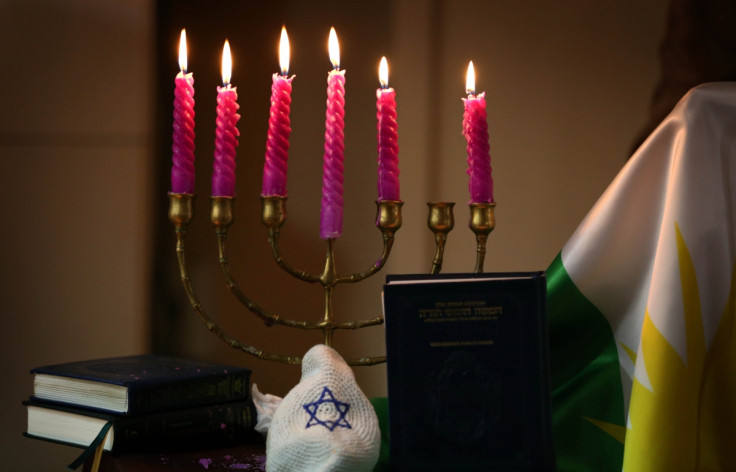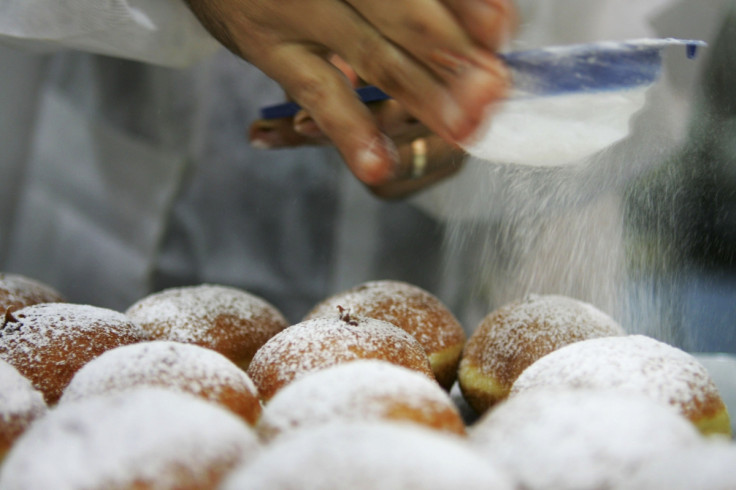Hanukkah 2015: Food and traditions to celebrate the Jewish festival

Hanukkah is one of the most significant periods in the Jewish calendar, celebrated by millions worldwide. Also known as the Festival of Lights, it is observed by lighting one candle on the menorah candelabrum each day.
Hanukkah is celebrated in November or December in the western calendar. The holiday begins on the 25th day of Kislev, the ninth month of the ecclesiastical year on the Hebrew calendar, and is celebrated for eight days. Hanukkah, also spelled Chanukah, will begin on the evening of 6 December and end the evening of 14 December 2015.
Observing the Jews' struggle for religious freedom, the word Hanukkah means "rededication". The festival marks the rededication of the Second Temple in Jerusalem during the second century BC, when the Israelites, led by the Maccabees, gained victory over the Greek-Syrian oppressors. Hanukkah is celebrated in a number of ways, from the traditional lighting of the menorah to special foods and games.
Menorah
Hanukkah is celebrated by lighting a candelabra called a menorah. Eight of the branches represent the eight nights behind the holiday, while the last one – which is normally higher than the rest – is called the shamash, or the helper candle, and is used to light the rest. The menorah is normally lit at sunset. The shamash is lit on the first night and a blessing is recited. Although the candles are placed from right to left, they are lit from left to right. The candelabra is traditionally put near a window, to remind passers-by of the miracle of Hanukkah.
Food
As Hanukkah celebrates the miracle of oil, it is traditional to eat fried foods such as sufganiyot – jam-filled doughnuts. Traditional foods include potato pancakes, known as latkes in Yiddish, particularly among Ashkenazi families. According to rabbinic literature, there is also a tradition of eating dairy products, such as cheese, during Hanukkah.
Games
A traditional game involving a spinning top, called a dreidel or sevivon, is played by children during Hanukkah. The four sides of the top are imprinted with a Hebrew letter, which are an acronym for the Hebrew words meaning "A great miracle happened there" – referring to the miracle of the oil behind the festival.

Players are given an equal number of sweets or nuts, some of which are placed into a pot in the centre. They take turns spinning the dreidel and each side of it bears a letter which tells the player whether to put in or take out the sweets. The game ends when someone has all of the sweets.
Music
There are several Hanukkah-themed songs written for the holiday. These include Hanukkiah Li Yesh ("I Have a Hanukkah Menorah"), Ocho Kandelikas ("Eight Little Candles"), Kad Katan ("A Small Jug") and S'vivon Sov Sov Sov ("Dreidel, Spin and Spin"). The most well-known songs in English-speaking countries include Dreidel, Dreidel, Dreidel and Chanukah, Oh Chanukah.
Gelt
Gelt, Yiddish for money, is often given out to children during Hanukkah. It normally consists of small coins or chocolate coins. The tradition of Hanukkah gelt dates back to an old Eastern European custom of children presenting their teachers with a small sum of money as a token of gratitude.
© Copyright IBTimes 2024. All rights reserved.





